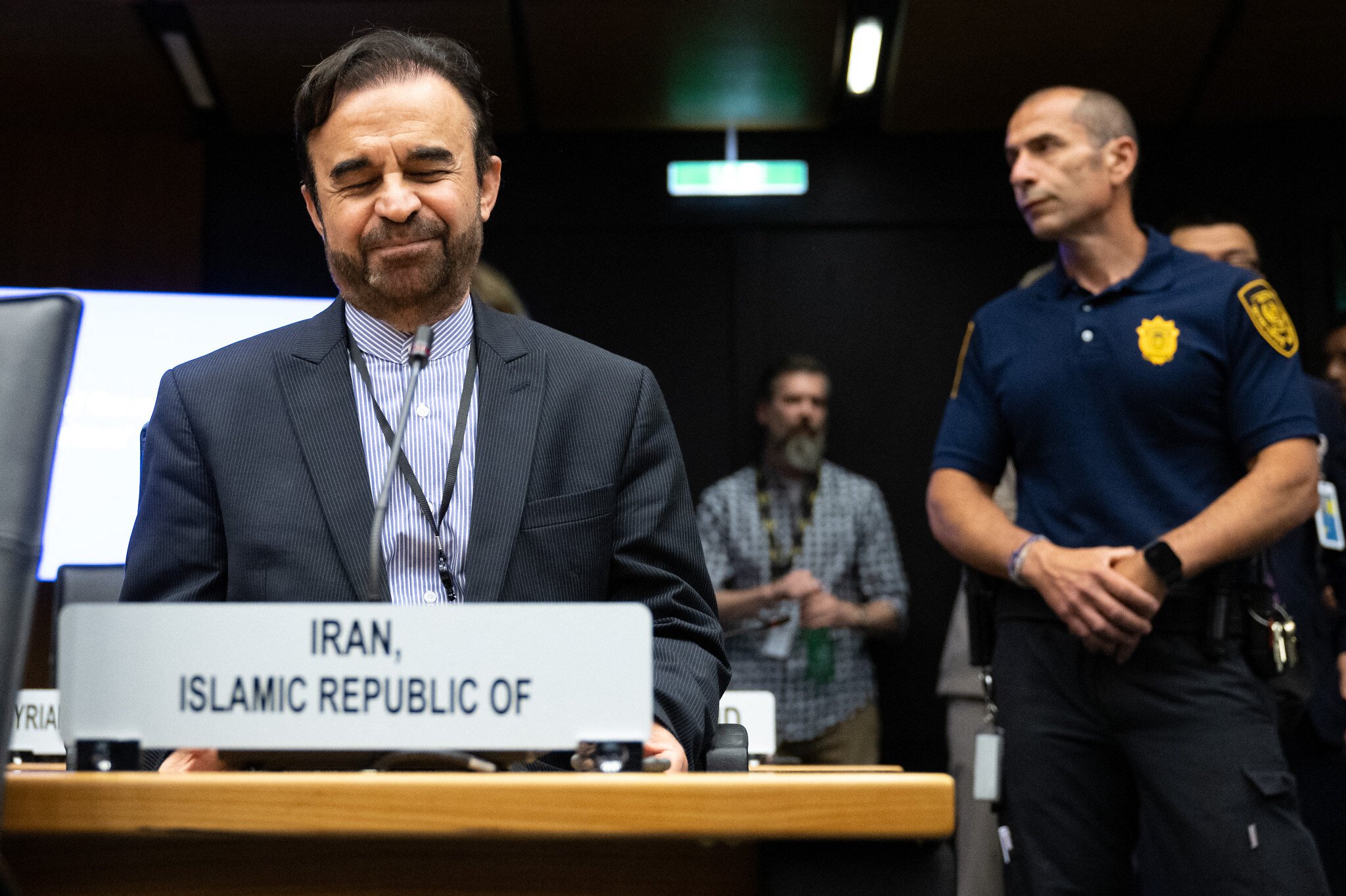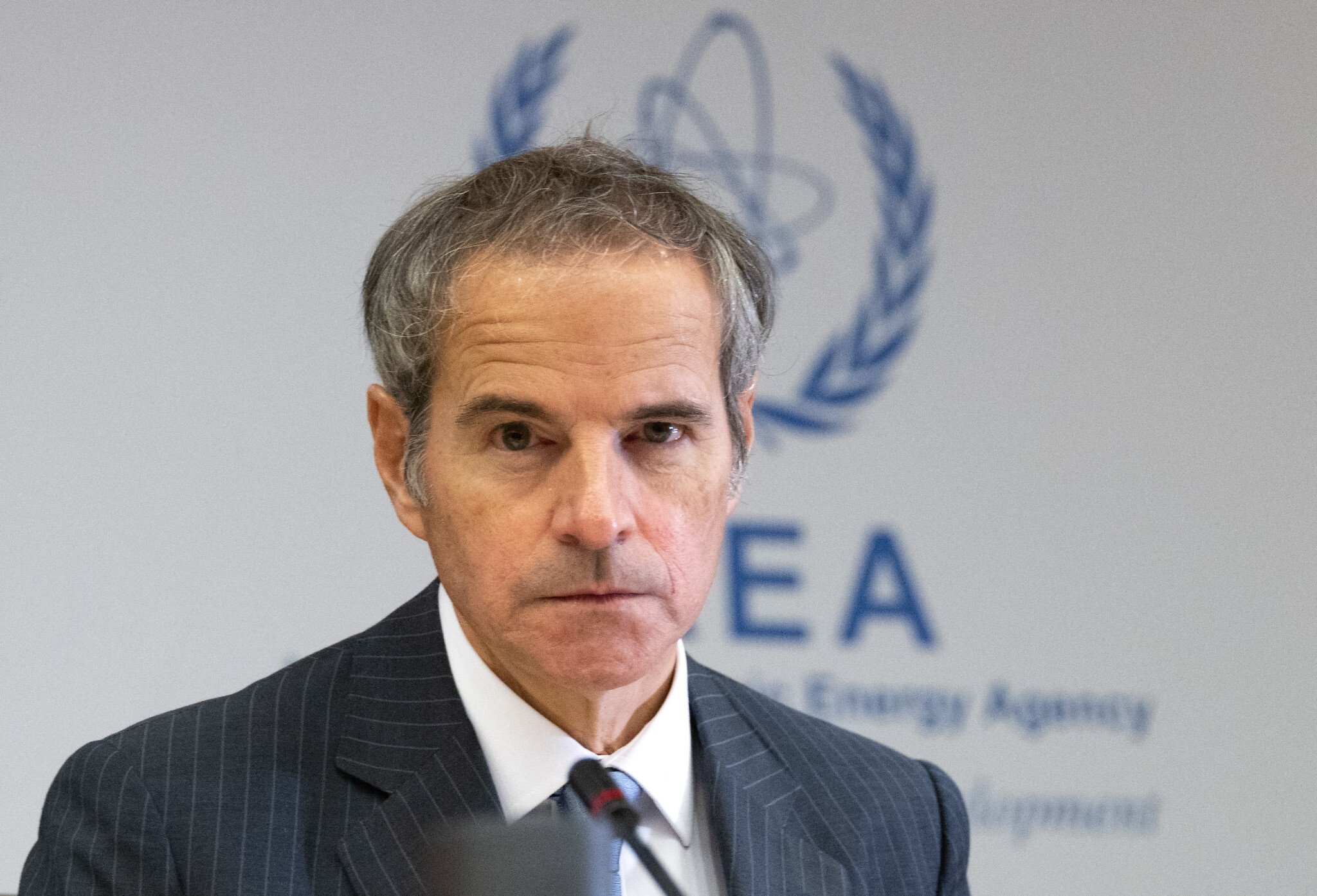



Iran’s parliament approved a bill on Wednesday to suspend cooperation with the UN nuclear watchdog, state-affiliated news outlet Nournews reported.
The move, which needs the final approval of Iran’s Supreme National Security Council to be enforced, according to Nournews, follows a 12-day war, launched by Israel in order to prevent its longtime enemy from developing a nuclear weapon.
In parliament, 221 lawmakers voted in favor and one abstained, with no votes against from those present in the 290-seat legislature, according to state TV.
Parliament Speaker Mohammad Bagher Qalibaf was quoted by state media as saying Iran would accelerate its civilian nuclear program.
Tehran denies seeking nuclear weapons and says a resolution adopted this month by the International Atomic Energy Agency (IAEA) declaring Iran in breach of its non-proliferation obligations paved the way for Israel’s attacks.
The parliament speaker was quoted as saying the IAEA had refused even to appear to condemn the attack on Iran’s nuclear facilities and “has put its international credibility up for sale.”
He said that “for this reason, the Atomic Energy Organisation of Iran will suspend its cooperation with the Agency until the security of the nuclear facilities is guaranteed, and move at a faster pace with the country’s peaceful nuclear program.”
Iran has long insisted its nuclear program was peaceful, though it is the only non-nuclear-armed state to enrich uranium up to 60 percent, a short, technical step away from weapons-grade levels of 90%.
Lawmakers chanted “Death to America” and “Death to Israel” after the vote on Wednesday, state TV reported.
Earlier this week, the Iranian parliament’s national security committee approved the bill’s general outline, and the committee’s spokesperson, Ebrahim Rezaei, said the bill would suspend the installation of surveillance cameras, inspections, and the filing of reports to the IAEA.
Following the Israeli attacks on its nuclear sites and the US bombing of underground Iranian nuclear facilities over the weekend, the Iranian government also faces calls to limit the country’s commitments to the nuclear non-proliferation regime.
In an interview with Qatar’s Al-Araby Al-Jadeed on Tuesday, Foreign Minister Abbas Araghchi said: “I think that our view on our nuclear program and the non-proliferation regime will witness changes, but it is not possible to say in what direction.”
The IAEA’s director general, Rafael Grossi, said on Wednesday that his top priority is getting his inspectors back to Iran’s nuclear facilities to assess the impact of the US and Israeli strikes and verify its stocks of enriched uranium.
“This is the number 1 priority,” Grossi told a news conference at an Austrian security cabinet meeting. He is seeking his inspectors’ return to Iranian sites, including the three plants where it was enriching uranium until Israel launched strikes on June 13.
Asked if Iran had informed him of the status of its stocks of enriched uranium, particularly its uranium enriched to up to 60% purity, he pointed to a letter he received from Iran on June 13, saying Iran would take “special measures” to protect its nuclear materials and equipment.
“They did not get into details as to what that meant, but clearly that was the implicit meaning of that. We can imagine this material is there,” Grossi said, suggesting much of the uranium had survived the attacks.
Israel and Iran entered into open conflict on June 13 when Israel launched airstrikes targeting Iran’s top military leaders, nuclear scientists, uranium enrichment sites, and ballistic missile program. Israel said the campaign was necessary to prevent the Islamic Republic from realizing its declared plan to destroy the Jewish state. On June 22, the US struck key Iranian nuclear facilities at Natanz, Fordo, and Isfahan.
Iran retaliated against Israel’s attacks by launching over 550 ballistic missiles and around 1,000 drones at Israel. Iran’s missile attacks killed 28 people and wounded thousands in Israel, according to health officials and hospitals. Missiles hit apartment buildings, a university, and a hospital, causing heavy damage. Iran also fired at a US base in Qatar after the American strikes.

